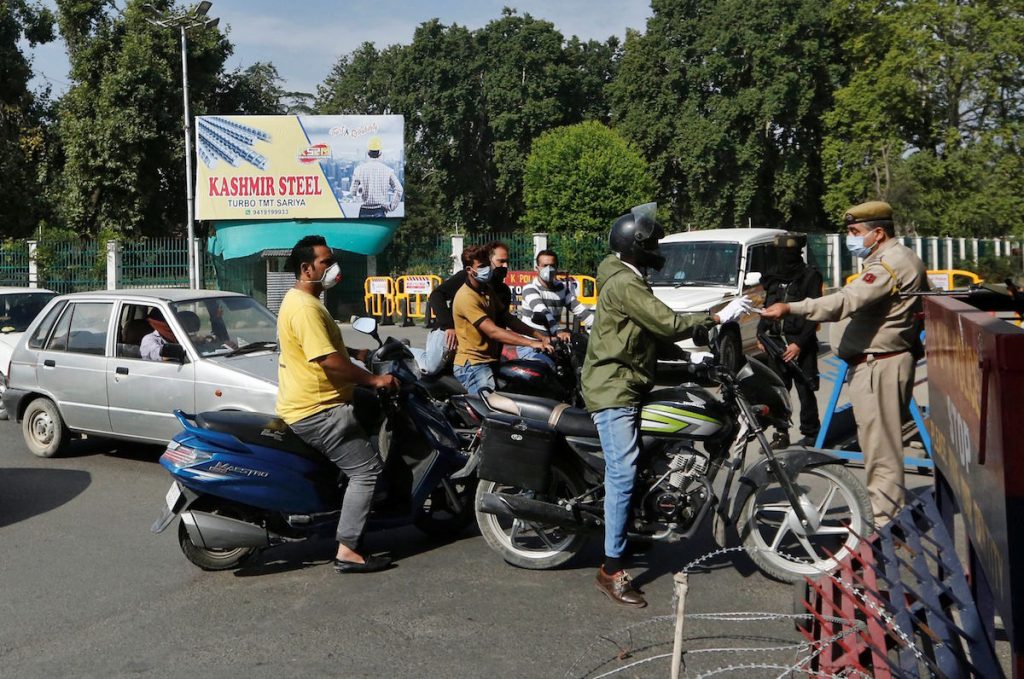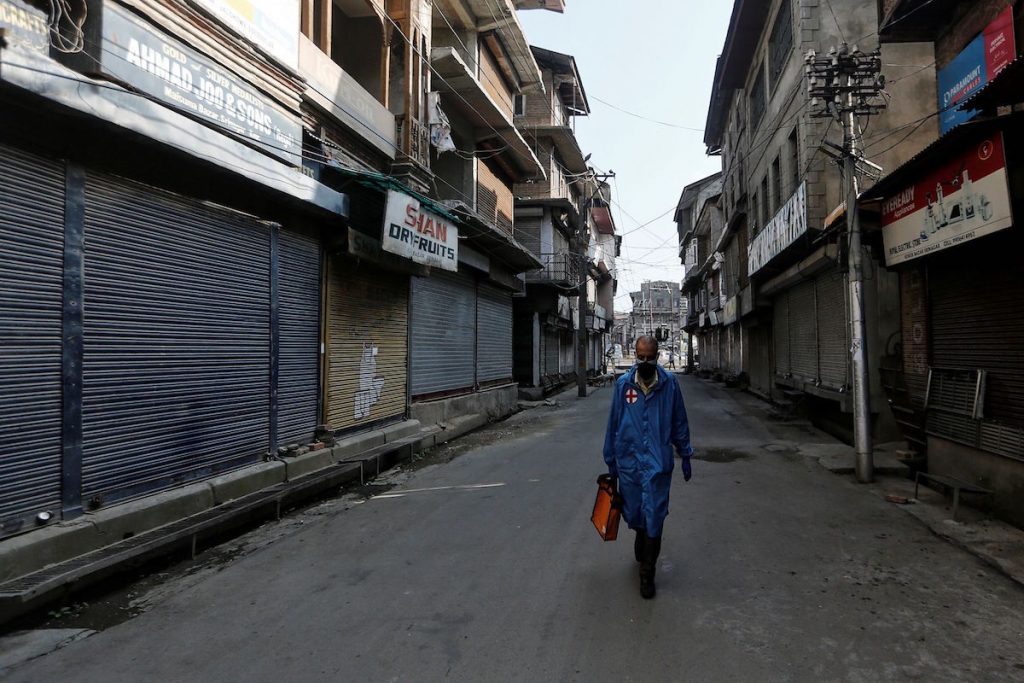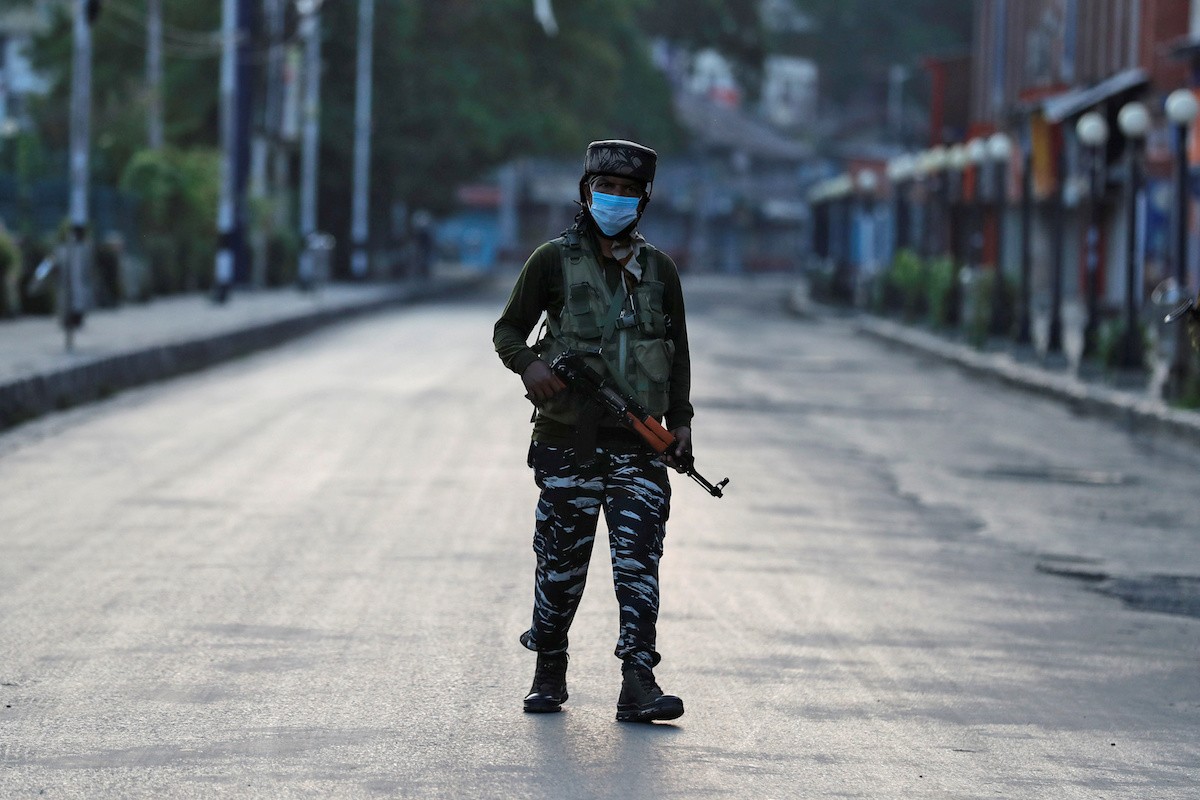Harsh and discriminatory restrictions on Muslim-majority areas in Jammu and Kashmir are still being imposed Indian authorities one year after the revocation of the state’s constitutional status on Aug. 5, 2019, said a leading rights group.
New York-based Human Rights Watch said that the government’s unwarranted restraints on the rights to free speech, access to information, health care, and education in these areas have been intensified by the COVID-19 pandemic.
The rights group noted that the authorities ordered — from Aug. 3 — the restricting movement for two days to prevent “violent protests” against last year’s decision to revoke constitutional autonomy.
“Indian government claims that it was determined to improve Kashmiri lives ring hollow one year after the revocation of Jammu and Kashmir’s constitutional status,” said Meenakshi Ganguly, HRW’s South Asia director. “The authorities instead have maintained stifling restraints on Kashmiris in violation of their basic rights.”
Last year — anticipating unrest after the government revoked Jammu and Kashmir’s autonomous constitutional status and split it into two federally governed territories — the Indian authorities imposed broad restrictions on freedom of movement, banned public meetings, shut down telecommunication services and educational institutions, and detained thousands of people.
During the months that followed the government eased some restrictions, hundreds of people remain detained without charge, critics are threatened with arrest, and access to the internet is limited.

HRW said that prominent political leaders, including three former chief ministers, were among the thousands detained to prevent protests. Police told the courts that 144 children had also been taken into custody. While most of those held have since been released, according to the Jammu Kashmir Coalition of Civil Society, based on habeas corpus petitions over 400 people remain in custody under the draconian Public Safety Act, which permits detention without trial for up to two years.
There also have been several allegations of new arrests, torture, and ill-treatment by security forces. The government has also used harsh counterterrorism and sedition laws to clamp down on peaceful critics.
HRW said that in June, the government announced a new media policy in Jammu and Kashmir that empowers the authorities to decide what is “fake news, plagiarism and unethical or anti-national activities” and to take punitive action against media outlets, journalists, and editors.
The policy contains vague and overbroad provisions that are open to abuse and could unnecessarily restrict and penalize legally protected speech.
The government crackdown adversely affected livelihoods, particularly in the tourism-dependent Kashmir Valley, HRW said. The Kashmir Chamber of Commerce and Industries estimated that the first three months of a lockdown to prevent protests since August 2019 cost the economy over US $2.4 billion, for which no redress has been provided. Losses have nearly doubled since the government imposed further restrictions to contain COVID-19 in March.
HRW said that the pandemic has made access to the internet crucial for information, communication, education, and business. However, the authorities have only barely complied with Supreme Court orders in January to treat access to the internet as a fundamental right, permitting only slow-speed 2G mobile internet services.

Doctors have complained that the lack of internet was hurting the COVID-19 response. “It is a new virus — research, studies, guidelines and updates are changing every other day,” said one doctor. “The internet helps doctors to keep a tab on developments around the world, but we cannot access video lectures or other information in the absence of high-speed internet.”
Soon after students returned to classes following the lifting of restrictions on movement, the government announced the COVID-19 lockdown. Without proper internet, students are often unable to attend online classes.
“The impact on education has been particularly severe,” the Human Rights Forum for Jammu and Kashmir noted in its report on human rights violations since August 2019, saying that since the lockdown to contain COVID-19, “The limiting of networks to 2G has made it impossible for online classes to function adequately. Graduate students and teachers have been unable to participate in conferences or have their papers published, causing willful harm to their careers and violating the rights to education.”







